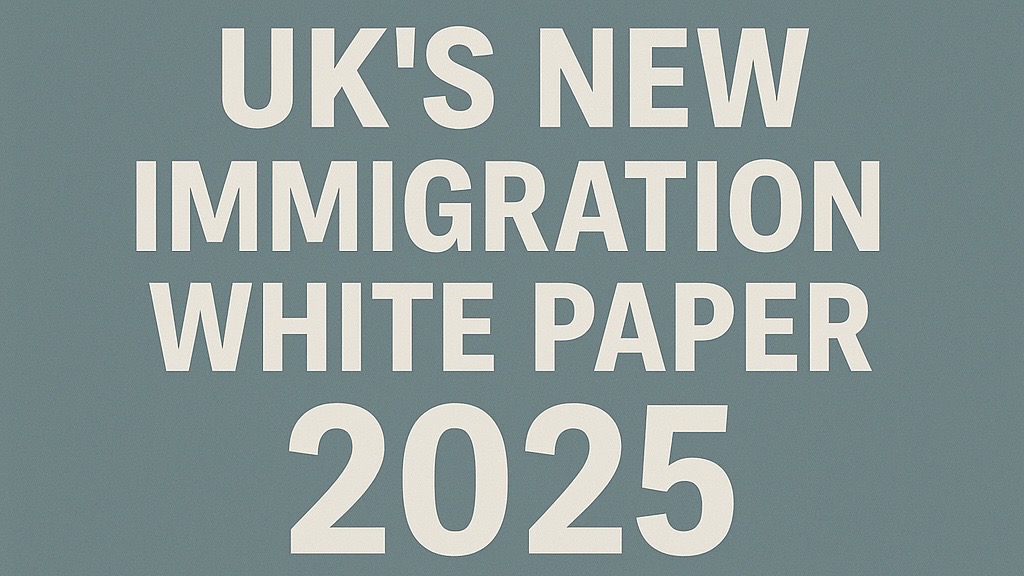In a decisive policy move, the UK Government has released its long-awaited Immigration White Paper 2025, titled “Restoring Control over the Immigration System.” The publication outlines a comprehensive series of reforms aimed at significantly reducing net migration by 2029.
Led by Prime Minister Keir Starmer, the paper reflects a fundamental shift towards prioritising domestic workforce development and reducing reliance on foreign labour and international students.
For migration professionals, international students, investors, and sponsoring employers, these changes mark the most substantial recalibration of the UK’s immigration system in over a decade.
Key Changes Introduced in the 2025 Immigration White Paper
The White Paper introduces the following major reforms:
1. Indefinite Leave to Remain (ILR) Raised to 10 Years
Migrants arriving in the UK from 1 January 2020 onwards will now be required to complete 10 years of lawful residence (previously 5 years) to qualify for settlement.
2. Skilled Worker Visa Eligibility Narrowed
Eligibility for the Skilled Worker visa will now be limited to roles at RQF Level 6 (graduate-level jobs). Simultaneously, the minimum salary threshold will increase to £38,700.
3. Graduate Route Cut to 18 Months
The Graduate Route, previously allowing international students to stay in the UK for 2 years post-study, will be reduced to 18 months.
Additionally, a 6% levy will be imposed on higher education institutions based on their income from international student tuition.
4. Care Worker Sponsorship to End by 2028
The government plans to phase out foreign recruitment in the adult social care sector by 2028, calling for increased domestic training and staffing.
5. Tougher English Language Requirements
Across work, study, and family routes, the minimum English proficiency level will rise to B2. The change is part of a broader strategy to enhance integration.
6. Increased Employer Sponsorship Charges
The Immigration Skills Charge will rise by 32%, placing additional financial responsibility on UK employers. Sponsors will also be required to demonstrate investment in local workforce training.
7. Stricter Family Visa Criteria
New rules will raise the income threshold for family visas to £38,700 and introduce tighter documentation requirements for dependants.
What Does This Mean for the Global Migration Landscape?
This White Paper marks a significant tightening of the UK’s immigration regime, with far-reaching implications:
- Reduced accessibility for international talent and students
- Increased pressure on UK employers reliant on global recruitment
- Potential redirection of international students and skilled migrants to more welcoming destinations such as Canada, Australia, and Europe
While the UK seeks to build domestic capacity, global mobility stakeholders must adapt quickly to the new regulatory landscape.
Strategic Shift or Restrictive Barrier?
The 2025 Immigration White Paper signals a deliberate policy reset—prioritising domestic development while tightening migration routes across the board.
For migration professionals, education providers, and employers worldwide, staying informed and responsive will be critical. Whether these reforms enhance sustainability or limit competitiveness remains to be seen.





